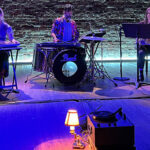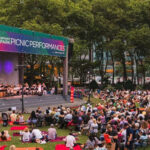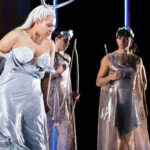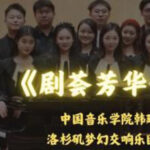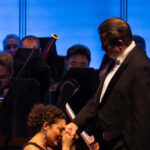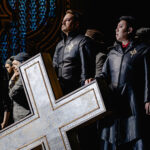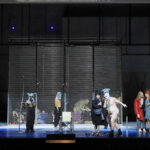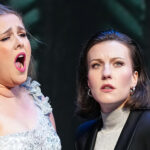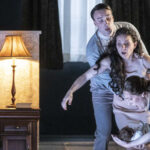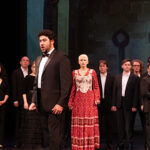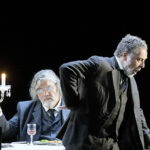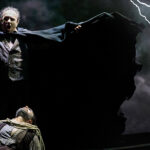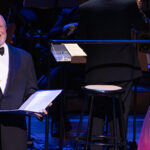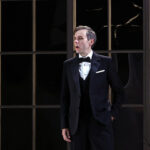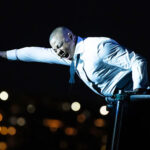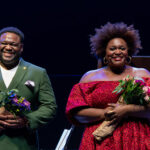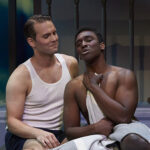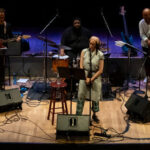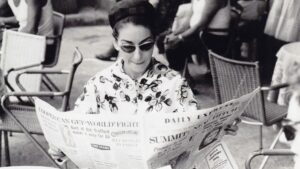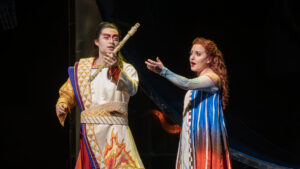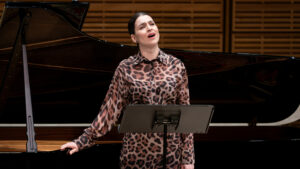
Performance Review
Two experimental new works from thingNY explore decadence, quarantine, digestion, and lineage at The Exponential Festival.
Only by knowing what went on around the great composers is it possible to truly understand why they are great and why their operas have come down to us (and why dozens of other titles have been left behind).
When the subject of New York City Opera comes up, you always hear the same query: “What happened to City Opera? Are they even performing these days??”
Dmitri Tcherniakov’s interpretation of Wagner’s Der Fliegende Höllander presents an engrossing character study about Senta and the Dutchman’s struggles against their insular community’s stifling conformism.
Love makes fools of us all – that seems to be the theme of this summer’s Glimmerglass Festival.
You probably won’t leave Idomeneo ready to burst out in song, but what the opera lacks in melodic immediacy it makes up for in sheer virtuosity.
Jay Scheib’s Augmented-Reality Parsifal is a cautionary reminder that technological innovation shouldn’t absolve directors from the exacting work of deriving intelligent and fascinating theater from the source material.
In Nike Wagner’s essay “The Sounding Silence,” the German dramaturge argues that “the longing for deathrepresents the central motif” of her great-grandfather’s opera Tristan und Isolde.
At the heart of Tobias Kratzer’s incisively rollicking production of Tannhäuser lies a metanarrative that maps Wagner’s early political and artistic challenges onto its hero’s philosophical struggles.

